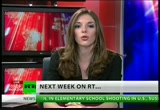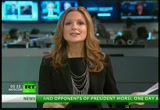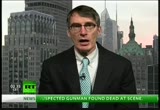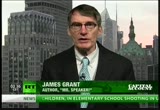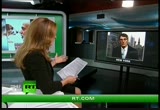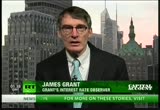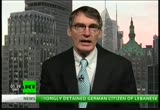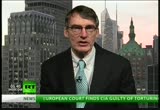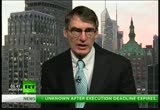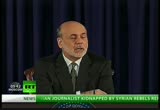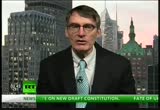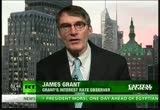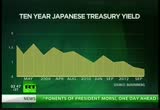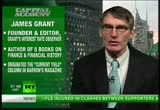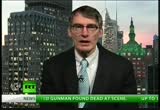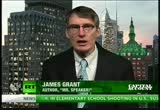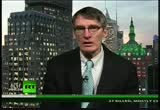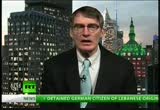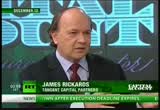tv [untitled] December 14, 2012 8:30pm-9:00pm EST
8:30 pm
you'll long with more news and in death interview so keep it tuned in right here and that's going to do it for now be sure to follow us meghan underscore lopez good night. free. education free storage free. range three. three. three. three blog video for your media project c.e.o. don carty dot com. good afternoon welcome to capital account i'm lauren lyster here in washington d.c. these are headlines for friday december fourteenth two thousand and twelve whether it is going over the fiscal cliff or spanish house prices suffering
8:31 pm
a severe fall there seems to be a universal fear a financial fear of gravity we're scared of falling but ironically we don't seem to have much fear of altitude push should we jim grant founder and publisher of grant's interest rate observer is here to offer his my monthly outlook plus voters in japan head to the polls sunday to cast their ballots and parliamentary elections and if recent polls are any indication they look set to elect shinzo all babies leader of japan's main opposition party he said to be the next prime minister in the face of technical recession and weak exports in that country he is demanding the make of japan begin unlimited q.e. yes i know japan has been deflated for the past twenty five years so why should we pay attention to this call from a politician today we'll ask our guests plus we had a tremendous response from you this week we will share in viewer feedback let's get to today's capital account.
8:32 pm
we have openly wondered on this show if the extraordinarily low interest rates charged to the u.s. treasury for its borrowing needs have been the result of the fed's gracious appetite for fixed income securities in the past four years that yields have been if this rated by fed policy there is no question the only question for us is if this is the result of fed policy past or present in other words is it the seemingly obvious presence of the fed in the bond market today as the major buyer of uncle sam's ious which is keeping rates low or was it the fed's accommodative monetary policy during the boom years and the subsequent urged by the private sector to relieve itself of overpriced assets in the bust that has kept yields from rising in either case we find fault with the fed for if yields were kids we would be
8:33 pm
a little worried about this. well and the thompson kids too they're about to speak there in the backyard threw them out with the trash. you look at the door. i guess we will call it honey i shrunk the yield curve only in this scenario policy wonks in control of the shrink ray as the particle eviscerate are used by rick moran of his character was aptly called seem hardly concerned about our new microscopic interest rates if anything the lower they go the more the fed may print forcing a new class of indentured investor out to scavenge for more yield in the front lawn fortunately for us our next guest is now used to viewing fed policy with a microscopic microscope bimonthly in his latest issue of grants the letters editor jim graham uses over some of the similarities and differences he sees between the investors of today and those of you old past here to talk more about it jim grant is here he is founder and editor of grant's interest rate observer and author of
8:34 pm
the book you see there mr speaker and a good one at that so thank you so much jim graham for being here today what a pleasure lord nice to be here oh great thank you so much so let's start with your recent news letter which i should say is out today we are so lucky to have you on a day that you published the title of a piece in your article the first piece is market of the absurd and you actually draw some interesting parallels between the bond bearers of one nine hundred eighty one and the bond bulls today now interest rates were fifteen percent back then today we know they are microscopic so what exactly are the similarities because of course the world looks very different then and now. well i think one similarity is is something called muscle memory which is that the conditioned behavior of people operating in markets that have been trending hot for months the school quarters work for doing for years with for decades to anyone bond yields have been rising bond prices falling since nineteen forty six that's what thirty five years. of
8:35 pm
today interest rates have been falling bond prices rising since the. nine hundred eighty one that's thirty one years and counting. then. people can come to see it come to believe that central banks were kind of harmless institutions because after all they reasoned in the social democracy inflation is in the radical you can't get rid of it today or bond bulls have come to reason that to after all central banks are fairly harmless institutions because in an over leveraged economy inflation simply cannot be generated so there is both there was then and there is now i think a dangerous kind of bly indifference to the evident consequences of the extraordinary monetary policies kick to continue on this historical lesson what would you say is the biggest take away from one thousand nine hundred one and that comparison to be worried about are cognizant of right now today but i think i
8:36 pm
was around for both instances of course in ninety one i was like what it's five years old or something very big disco in one thousand nine hundred eighty one people really wanted no part of unprecedently high interest rates because they knew and because the great and the good in wall street were telling them that rates would go much higher i think of it people turned up their noses at equity like returns without equity risk fifteen percent fourteen percent for thirty years basically non-callable that was available up until nine hundred eighty four off and on. the world didn't care the world had seen rates go up for a generation at a half. similar today people have seen interest rates shrink virtually value for the rise they think after all the central banks simply will not bear on the side of excess. the great and the good believes that the ph d.'s in charge of monetary custody know exactly what they're happening and have the control to pull
8:37 pm
it off whereas we agree on which was written to have lauren think it's not going to happen. you warn about the ph d. standard often and you know it's funny looking at headlines or saying people today are worried about inflation or don't think that central bank's going to cheever that looking at the headlines you do see the concern over falling prices a couple of the headlines i read at the top of the show on any given day you can see this concern and central banks are certainly concerned over asset price deflation they don't seem to have the appropriate fear of inflation there in encouraging more leverage do you think that velocity of money could pick up unexpectedly and that all this pent up inflation reflected on the fed's balance sheet could manifest all at once. i think it will not be all one spread certainly see the possibility of the turnover rate of money or velocity picking up it has in the past one sees for example the possibility of of the world falling out of love
8:38 pm
with the financial position of the united states government and therefore not rolling over maturing debt securities rather in lieu of buying more treasuries perhaps buying a couple of hundred acres of farmland in illinois or iowa or some canned corn or something so there's nothing that says that the world must remain in place it's in fact it seems to me that the the lesson the truly humbling lesson from cycles past is that they don't issue a press release or ring a bell that. things can remain seemingly excess of you turn your back and then they become. if not suddenly then gradually and but by to be that begin to become reasonable that is they were version of some sort of mean. and i think that we are approaching that if not having if we have not yet begun to have to begin the path back to reasonable this interest rates are you think we're on a path back to reasonable ness right now that they're going to rise i think so yes in fact more if i sound if i sound well versed in this it's only because i've been
8:39 pm
saying it for what seems like fifty years now. but what i look at so the prophecy is what none of us really can do we pretend some of us but one one can observe is there is simply no value in the fixed income markets however however even if it's not much of the world is the only world we have and we must deal with it as it is and if you are a game i would like to talk to your billions yes billions of viewers about about ways in which even today one might find some crumbs of interest income you know under the couch or yeah on the yeah well i would like to hear about that because of course the fed is trying to push everybody and. riskier and vast meant you can't make any money off of bonds right now at least looking at the yields although they look juicy compared to somewhere like japan where might you find some value relative to the price or the cost of the of what you're investing in well hold on
8:40 pm
because i'm going to tell you we're going at like five percent when we were. ahead excited that's that's huge well the many people are involved it's not their own finances or old from nasa but many people are also involved in nursing along church and elements or family money of some kind or. you know the treasure of a club and you despair of finding anything that pays more than one tenth of one percent for a cash balance there is a class of mutual fund called prime rate fund or leverage loan fund vance has a very good one and these funds and invest in the senior debt claims floating rate debt claims of companies that have been through leveraged buyouts embryos and the like now these are leveraged companies but you as an investor a command the senior most capital position in that and these loans did very well as a credit if you very well in terms of credit and repayment and the whole experience
8:41 pm
even in two thousand and seven eight and nine and his fund shield from four and a half to five and five plus there was also a class of income producing asset called the business development company of ari's and column both of the d.c. they're listed new york stock exchange the prices of these can be volatile but again the credit experience of both of them has been very good over a very difficult cycle as they both yield above eight percent all right well there you have a couple of camps in this world have no yield or low yield where you have found some to tell us about i appreciate it not to harp on the fed too much i just want to get one more insight from you on it because we did have the announcement from ben bernanke earlier this week and it was of course interesting that he. change the interest rate or the fed funds guidance to match guideposts is what he called an economic guide post as opposed to a date and he said you know we're likely to keep this low low fed funds rate guidance as long as inflation looking one to two years out doesn't look like it's
8:42 pm
going to exceed. two and a half percent to paraphrase him when he was asked so really sorry just one more moment when he was asked how has the fed been in projections you know has he been accurate in some cases here is how he responded let's play a bit. it's fair to say that we have overestimated the pace of growth. total output growth g.d.p. growth from from the beginning of the recovery i think it's only fair to say that that. economic forecasting beyond a few quarters is very very difficult. for them can i say i'm especially large especially when they're forecasting concerns the future because i can i'm older than i can i have many more arrows under my belt therefore much more experience but let us not forget that these people missed the biggest cyclical event of their lives in the two thousand and seven eight and nine experience i mean how about just
8:43 pm
a little bit of humility in the face of the ignorance we all confront in the thing we call the future i mean so any way you are asking him or me i think i don't do it outside so so. so the federal reserve wants us to know that it will be vigilant when inflation reaches the measured rate of two and a half percent but it is a truism of our financial lives that the thing you want to measure somehow disappears when you try to measure it for example the measured rate of inflation was very manageable seemingly in two thousand and six and seven the thing that was inflating was the thing as it turned out that would guide our collective economic destiny for the next five years namely house prices and the powers that be simply didn't notice. inflation is a defined term who's to say that inflation at the checkout counter is the real peril what happens if the federal reserve driving people to so-called risk assets over eggs that putting and creates another bubble in stocks bonds commodities
8:44 pm
farmland gold what have you yeah the fed will have some measure of responsibility you know or well i was waiting for me to ask chairman bernanke you mr mr chairman you want people to buy stocks you want them to buy special of great corporate debt . if the price of these things collapses will you be writing letters to the be removed what or what the loans will you make is a federal functionary. so i think they're going to start going to get near those and i'm sure that they will say that that is not in their mandate unfortunately and they can always rely on that and jim grant that i may ask you to hold right there we will come back to you in a couple minutes i just have to get to this break but we will have more with jim grant founder and editor of grants interest rate observer because still ahead japan's voters head to the polls this weekend and this vote might have a major impact on japanese monetary policy i know we are going to say they have been rare enough on monetary policy for decades but jim brown tell us why we should
8:45 pm
pay attention but first your closing market numbers. wealthy british soil it's time to. market why not. find out what's really happening to the global economy with mike stronger for a no holds barred look at the global financial headlines tune into kaiser report. download the official application so choose your language stream quality and enjoy your favorite. t.v. is not required to watch on t.v.
8:46 pm
8:47 pm
welcome back before the break we were talking about the chase for yield looking at something like u.s. treasury yields which the ten year is yielding one point seven percent will those heels look downright juicy when you compare them to japan's look at the ten year japanese bond ok when i looked right before air it was yielding point seven four percent you can see how they've just continued on the downward swing why do we need to pay attention now will japan's voters head to the polls this weekend to vote in the parliamentary elections the man likely to win prime minister based on the polls we've had out so far he's the front runner has said he wants the bank of japan to print until price inflation gets to two percent may seem a little odd that the prime minister could be dissin volved in pressuring the central bank what does this indicate about the perceived power of the printing press and is this an excess of reality especially in the case of japan well let's ask jim grant because he has been writing about this and i'm so interested to get his insights jim what do you think about the front runner in japan saying i want
8:48 pm
the central bank to print until we get two percent price inflation and what is a say about the power that he thinks the printing press has we are there's something in the water lord of that water being the mediterranean the atlantic the pacific the sea of japan the arctic world water for the next central banks including switzerland which has got no ocean at all central banks are doing not only what they have never done but really had never been imagined they don't have much of that really could or would do the things they are doing. so here is japan japan has not been heard from for twenty five years the world's number two number three economy. for ever disappointing now is going to elect we think a new prime minister who finally has had it. with the underachieving central banks the japanese the japanese can't seem to procreate nor inflate is weak from the sixty one. they can't your brain or inflate you would think that human beings could
8:49 pm
do one or the other but they can't do both something is wrong so so japan has disappointed chronically everyone who believes that there was a radical different unit just a slightly different turn in the road but i'm thinking that this might be something worth watching because if for no other reason the japanese will be getting on with following which they seem to have a president to do they'll be following the world and implementing truly radical monetary policies and you know i think it i think it's very important ok so we certainly will watch i'm wondering if the japanese a yield curve is telling us anything about the beer g.'s ability to relate at this point and your view of the what i think is the problem and among many other problems japan is is the central bank can as it were invite the banks to get up and and cha-cha boring as such that's the wrong image for japan but they can
8:50 pm
invite the central banks to go forth and to create credit through the processes of buying securities or lending but if the banks are our capacity constrained through a lack of the service through a lack of capital or through a lack of of courage they will do no such thing if people feel they are over encumbered they will not apply to the banks so the banks might create credit so it's there are many difficulties in the pan but i you know it was our own chairman chairman bernanke who some years ago said that in the extreme the central bank can read an aircraft and go up and drop senos from the sky it could do that and it would not be so shocking before the cycle is over that central banks in desperation do just that yeah i wouldn't be surprised when we look at japan compared to say the us have the japanese bake inflation into their cake as well as the us and even more aggressively because you. our lower they've been trying to
8:51 pm
reflate for longer and they may get more aggressive so is the risk we may see a long awaited collapse in the japanese bond market before the us really arrest to watch for the it's a great question to which you have a great answer in fact laura i have no answer. to the trail of sorrow one of the trails of sorrow and speculation that is to be sure of the japanese bond market i think it will finally worked out i've no idea whether that combination will precede our own bear market and so i begin to despair of either one but again as a matter of of an arithmetic value proposition certain there is no reason to be owning these things you have to have people do or think as much out of habit as out of conviction yes complacency and perhaps to no i do want to ask while we're on asia i want to ask you one question about china because earlier this week we interviewed stephanie calton who was an economist of the m.m.t. discipline or modern monetary theory and their kind of descriptive scenario for the
8:52 pm
monetary system is that the government isn't revenue constrained because it is the monopoly issuer of the currency and some of them advocate stimulus or spending until you get full employment and i asked her you know would china be the most. relevant economy today in which they are doing something similar to what you're calling for here's what she said. they're spending a lot but it certainly doesn't look like any model that i think any m.m.t. here would advocate in terms of figuring out what you need national priorities if all you're doing is building a bunch of buildings that sit empty and so forth this is not this is not compatible with anything that we're advocating. my question though is is this what inevitably happens buildings that are empty factories that are working at capacity when you do have the government spending and spending and trying to achieve this goal of full employment. yes emphatically yes i mean i think perhaps what the. the school of economics thought which i now can't quite recall but this school of
8:53 pm
economics that we just heard advocates a kind of price control that wants the fed or central bank to to manipulate interest rates such that certain good outcomes occur such as a lot of hiring such as so-called price stability but. what happens in price control is almost invariably distortion of the allocation of resources china has got big problems in its system of credit the government controls and commands that fix interest rates allocates credit especially to state owned enterprises hence the empty shopping malls indeed empty cities now it's not so very different from what we have in this country where the federal reserve is muscling around the yield curve and sitting on the funds rate and raising up asset prices in the name of some set of goals that it's thinks are desirable it is heavily in the business of price
8:54 pm
control and indeed heavily into the business of central planning gradually and by the agree we have come to have all too much in common with what we call red china and there you go we'll have to leave it there i really appreciate you being here today jim grant always a pleasure on the day lauren pleasure thank you so much. all right let's wrap up with viewer feedback because it's friday and we have had some hotly debated interviews this week and we've received so much feedback so we have some good ones today so first of all we had jim rickards on earlier this week and bam bam twelve said question please the government wants to create inflation why
8:55 pm
jim's assessment that weakening the dollar to increase exports was just a cover story has to be right because it makes no sense at all though creating inflation by increasing import prices does because workers is kind of saying this that the government wants to import inflation and so that goes through to prices in the u.s. because the u.s. is a net importer so here's jim rickards you on why the government will want inflation take a listen. to the bar with negative real rates shock you into spending with a higher than the specs inflation in the combinations designed to give last year and that's the sort of secret plan behind it so. so that's his view i said government i should have said fed and i should mention the fed may also be trying to prop up asset prices to avoid a deflationary to leverage ing that is so painful so that's another commonly given reason now with first said to us sort of you are new to just how the thought when the fed makes future announcements someone from capital account should be in the press gallery to ask questions well with first another dear viewers have i got news
8:56 pm
for you take a look at this let me roll some video see that redhead in the background looking very astute as our own segment producer just steen underhill she wasn't called on this time to ask her question but just you wait we will keep sending her until she gets a question in. and in response to our discussion with eric sprott earlier this week for britain stallion's said why so nice to eric sprott and so incredibly rude and disrespectful to peter schiff who was a guest we had on last week. i do not know what people think would be disrespectful or rude about my interview with peter schiff it was a very fair interview yes we asked peter about his calls for hyperinflation because they have not materialized the way that it seemed to us that he had indicated in the past and we think that they are premature and we gave him time and the opportunity to respond and say that he hasn't always said that hyperinflation is going to happen he says that it could be one of the outcomes now we always try to be fair to our gas and respectful asking challenging and pointed questions in my
8:57 pm
book qualifies as such now in a back and forth surrounding the peter schiff interview while we're on it doug mcclure twelve thirty four was responding to another viewer said do you even know what happened that day if you do then tell me how she referred to me was not talking for shad lock and he's talking about her she he is talking about my interview with peter being influenced by mike shut locke who'd written a post about how he was asked to be on a panel with peter and it fell through so i don't need of your to tell you i can tell you i was not speaking from the commission wrote a post that day that we had nothing to do with we had been working on a debate panel that didn't work out that happens all the time in t.v. it's not weird it's not rare not even a bit i did the type of interview with peter that i would have done with peter regardless now in reply to that commenter. pace ceo's the a logos said i don't think lauren is anyone's mouthpiece but i imagine the producer on the show affects her angle more than some blogger dimitri is the producer of the show and we
8:58 pm
do it as a team and it's certainly true that if anyone is going to influence me or the direction of this show it is him and that is where we will leave it thanks for all your responses you know we'll continue to read them even if we don't all make air and that's our show for today as all we have time for thank you so much for watching be sure to come back on monday in the meantime you know you can follow me on twitter at lauren lister you can go like our facebook page and interact with us there dimitris always on there responding to you can see any shows you missed give us any feedback that we will possibly read at you tube dot com slash capital account you can watch us in h.d. on hulu and hulu alone and from everyone here thank you so much for watching and have yourself a great weekend. the
27 Views
Uploaded by TV Archive on

 Live Music Archive
Live Music Archive Librivox Free Audio
Librivox Free Audio Metropolitan Museum
Metropolitan Museum Cleveland Museum of Art
Cleveland Museum of Art Internet Arcade
Internet Arcade Console Living Room
Console Living Room Books to Borrow
Books to Borrow Open Library
Open Library TV News
TV News Understanding 9/11
Understanding 9/11